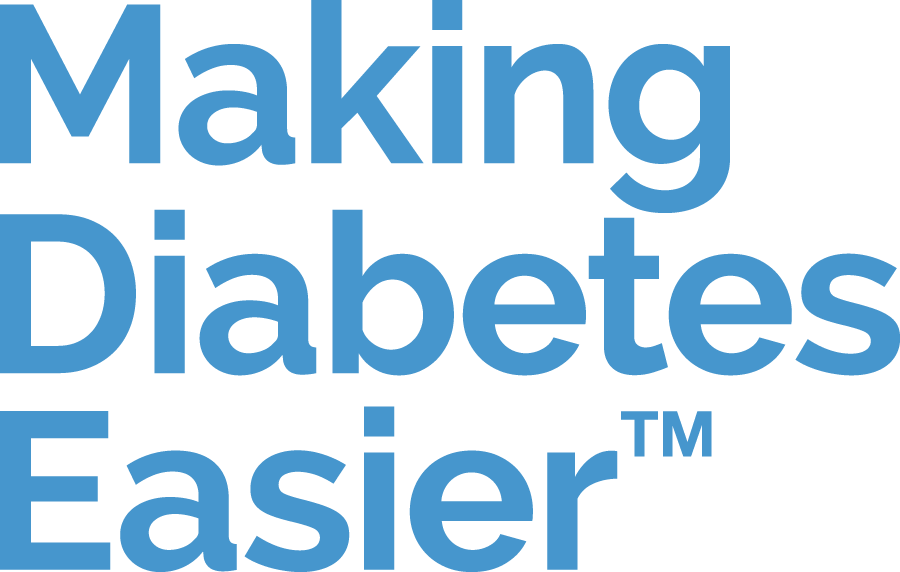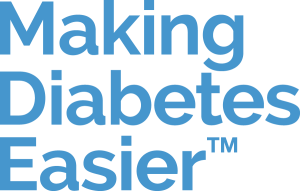What is considered an unbalanced diet if you have diabetes?

What is considered an unbalanced diet if you have diabetes?
Living with type 1 diabetes doesn’t mean you can’t eat certain foods.1 In fact, a diet that’s good for people with diabetes is good for everyone.1,2
A well-balanced diet provides you with all the nutrients you need.2 However, you should also limit certain foods, regardless of whether you have diabetes or not.2,3 For example, it’s widely known that eating too many cakes and biscuits and not enough vegetables doesn’t make for a balanced diet.4
But, if you have diabetes, it’s also important to know how some foods may affect your blood glucose levels, your weight or your risk of diabetes-related complications.1
In this guide, we explain what foods you may want to limit if you’re living with type 1 diabetes and why.
Food groups to limit if you have diabetes
Nutrition is one of the key pillars of diabetes management.5 To help manage your condition, international organisations like the International Society for Pediatric and Adolescent Diabetes (ISPAD) and the European Association for the Study of Diabetes (EASD) recommend limiting the following food groups:2,3,5
- Trans fats, or trans fatty acids, and saturated fats – both of these raise cholesterol levels and the risk of cardiovascular problems
- Added sugars, especially sugary drinks (except in the case of hypoglycaemia treatments) – these can cause your blood glucose levels to spike, which can make them more difficult to manage, potentially raising your risk of complications, such as cardiovascular disease, obesity and fatty liver disease1,2
Additionally, you could also consider limiting:2,3,5
- Sodium, as high-salt diets can lead to vascular complications
- High-calorie foods, which can lead to weight gain
- Low-fibre foods
More fibre in your diet may help manage your blood glucose levels as well as support your digestive health and heart health.2,5
What foods to avoid with diabetes
Consider reducing your intake of the following foods if you’re living with type 1 diabetes (and even if you’re not!).
Red and fatty meat
Red meat as well as fatty or processed meat products are all high in saturated and trans fats, which you may want to consider limiting as part of a balanced diet.3,5 This is because they raise cholesterol, which contributes to a higher risk of cardiovascular disease.3,5
Processed and ultra-processed foods
You could also choose to reduce processed and ultra-processed foods because they’re low in fibre, protein and nutrients.3,5 They’re also high in calories, added sugars and sodium and contain high amounts of saturated and trans fats.3,5
Examples of processed foods include cured meats and cheeses as well as tinned products with added salt or sugar.6
In turn, examples of ultra-processed foods include:3,6
- Chocolate and energy bars
- Fish and chicken nuggets
- Fries and chips
- Sugary breakfast cereals
- Carbonated soft drinks
- Instant noodles
- Dehydrated soups and powdered meals
- Some meat substitutes

Processed and ultra-processed foods
Fizzy drinks
People with type 1 diabetes may want to consider limiting or avoiding fizzy and sugary soft drinks as well as sports drinks.2–5 These can lead to blood glucose spikes, which may be difficult to manage.5
They may also contribute to weight gain, as they’re ultra-processed foods that are high in calories and sugar and low in nutritional content.2,5
There’s also evidence to suggest that consuming fizzy drinks may raise the risk of cardiovascular disease in people living with type 1 diabetes.2

Fizzy drinks
Refined grains
Try to go easy on refined, processed grains like white bread, white rice or some breakfast cereals and replace them with whole grains, when possible.3,7
Doing so may improve blood glucose levels and cardiometabolic health in people with type 1 diabetes.3
Sweets and high-sugar desserts
In moderation, you can still enjoy sugary and fatty foods, like sweets, cookies, cakes and ice cream – but try not to overdo it.1,4,5,7
These foods are:
- High in sugar, which gets into your bloodstream quickly, causing your blood glucose to spike1
- High in trans fats and saturated fats, which raise cholesterol3,5
- High in calories, which can make weight management more difficult2,4,5
An unbalanced diet looks similar for those living with diabetes and those without the condition.
However, if you have type 1 diabetes, you may want to pay particular attention to certain food groups that can raise your blood glucose quickly or that may raise your risk of certain complications.1
Living with diabetes doesn’t mean avoiding these foods completely, but rather enjoying them in moderation.1
To learn more about eating well with diabetes, visit our dedicated hub.
Sources:
- JDRF. Food and nutrition. Accessed 31 August 2024. Available at: https://jdrf.org.uk/knowledge-support/living-with-type-1-diabetes/everyday-life/food-and-nutrition/
- Rubin D, Bosy-Westphal A, Kabisch S, et al. Nutritional recommendations for people with type 1 diabetes mellitus. Exp Clin Endocrinol Diabetes. 2021;129(S01):S27–S43. https://doi.org/10.1055/a-1284-6036
- Diabetes and Nutrition Study Group (DNSG) of the European Association for the Study of Diabetes (EASD). Evidence-based European recommendations for the dietary management of diabetes. Diabetologia. 2023;66(6):965–985. https://doi.org/10.1007/s00125-023-05894-8
- ADA. Best Foods for You: Healthy Food Choices for People with Diabetes. Accessed 31 August 2024. Available at: http://main.diabetes.org/dorg/PDFs/awareness-programs/hhm/what_can_i_eat-best_foods-American_Diabetes_Association.pdf
- Smart CE, Annan F, Higgins LA, et al. ISPAD Clinical Practice Consensus Guidelines 2018: Nutritional management in children and adolescents with diabetes. Pediatr Diabetes. 2018;19 Suppl 27:136–154. https://doi.org/10.1111/pedi.12738
- Touvier M, da Costa Louzada ML, Mozaffarian D, et al. Ultra-processed foods and cardiometabolic health: Public health policies to reduce consumption cannot wait. BMJ. 2023;383:e075294. Published 9 October 2023. https://doi.org/10.1136/bmj-2023-075294
- ADA. Understanding carbs. Accessed 31 August 2024. Available at: https://diabetes.org/food-nutrition/understanding-carbs


